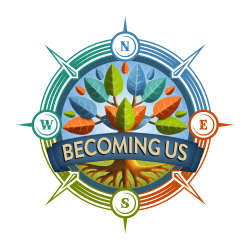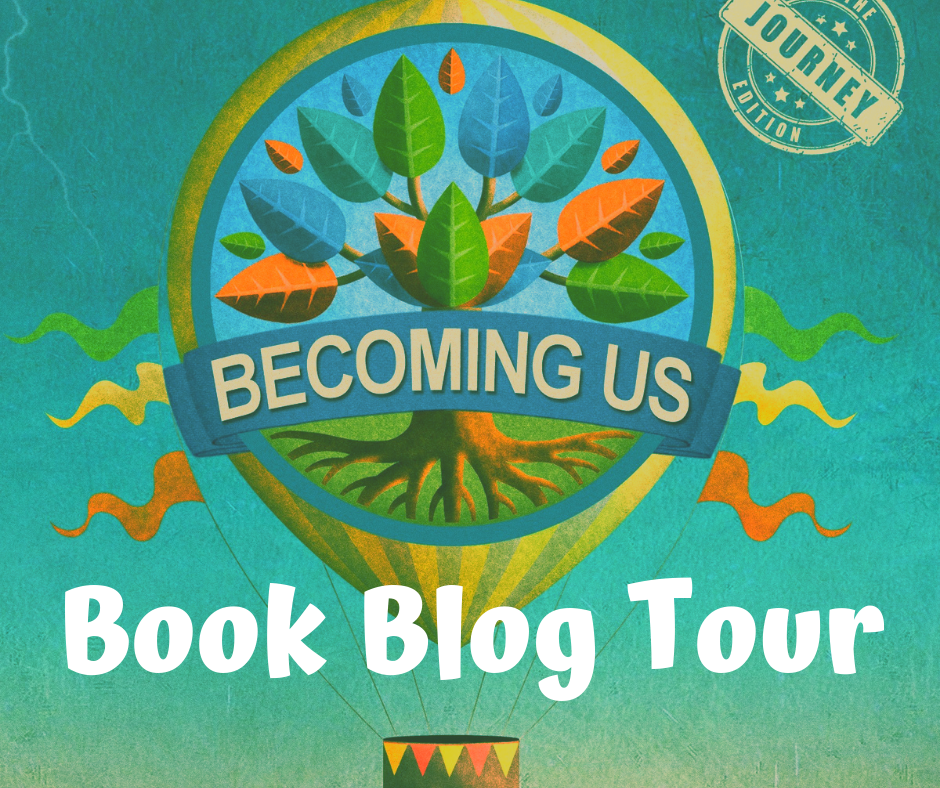Elly continues her book blog tour for her new edition of Becoming Us with a interview all about guilt. Read Jessica Cowling’s latest article where she asks Elly SIX very important questions about new parent guilt.
With the kind permission of Jessica, Elly is posting it here too!
Who is Jessica?
Jessica graduated from a combined Bachelor’s of Social Work and BA in Childhood and Family Relations from King’s University College in 2007, and then later completed her Master’s of Social Work in 2014.
Jessica is registered with the Ontario College of Social Workers and Social Service Workers (OCSWSSW), which serves as a regulatory body to ensure that she provides top-quality service to her clients.
She has training in Emotionally Focused Couples Therapy, the Gottman Method of Couples Therapy, as well as the Parent Education and Training Program through Braveheart Parenting in London.
If you’re a parent, you may have noticed that you have less time for your partner now than you did in the B.C. (Before Children) years. You may have also noticed more conflict, more stress, less connection, less sex. Obviously, right?
Do you ever wish there was some kind of formula you could follow for doing your relationship better while managing the massive transition to parenthood just a little bit better? Me too. As it turns out, this exists!
I’ve had the pleasure of reading an advance copy of Elly Taylor’s newest edition of her groundbreaking book, Becoming Us: The Couple’s Guide to Surviving Parenthood and Growing a Family that Thrives. Let me tell you, friends. I sure wish I had known about the earlier editions of this book when I was expecting my first. Let’s just say that my expectations were a little on the unrealistic side. And that becoming a parent left me with more than a little of a shell-shocked feeling. Not the blissful curling up with a sleepy newborn that I had in mind.
Elly’s book is like a tour book for new parents. Becoming a parent is the greatest adventure you’ll ever experience. And it can wreak havoc on your relationship. Even just a little bit of relationship preparation can go a long way in making your transition to parenthood a much smoother experience.
What I love about this book is all the conversation around expectations. We have So Many Expectations. Of our partners. Of our babies. Of our families and friends. Of ourselves. And what happens when we don’t live up to our own expectations? For many of us, it’s a whole lot of guilt.
“…We have So Many Expectations. Of our partners. Of our babies. Of our families and friends. Of ourselves. And what happens when we don’t live up to our own expectations? For many of us, it’s a whole lot of guilt…”
Did I do enough tummy time? Am I stimulating my baby enough? I know skin-to-skin is important, but frankly, it makes my skin crawl! All I want to do is run away! I want my old life back! I love my baby, but I NEED to get a break! I’m definitely screwing this up!
Sound familiar? I certainly thought all these things. And still do sometimes!
I asked Elly her thoughts on new parent guilt. She has some great insights that I’m so happy to be able to share with you here.
Why do new moms experience guilt?
Elly: It’s mainly because they want to be such good moms for their babies, while at the same time trying to live up to unfair and unrealistic expectations that they can do it all without help or support - and our supermom culture certainly doesn’t help with this. We put so much pressure on moms to have it all under control, be happy, be on top of things and when they’re not, they feel like there’s something wrong with them (or their partner, or their relationship).
And yet the reality, even for experienced parents, is we’re all feeling pretty clueless and just doing the best we can as we go along. The thing with kids too, is as soon as you think you’re on top of it something will happen, they’ll get sick or go into a new stage of growth so parents are always struggling to be one step ahead.
Is guilt a universal experience, or are some people immune?
Elly: I had a conversation with a lovely Mexican woman just the other day. She was saying that she was surrounded by so many people after she had her first baby, her community really came together for her, and at the time she actually found it a little annoying. But when we talked about all the different transitions that come with parenthood – in terms of body changes, financial decisions, expectations, self-esteem, social support, couple relationship etc – she felt the impact wasn’t so great on her because she was surrounded by women who could constantly reassure her that what she was going through was normal. She didn’t have the same feelings of confusion or failure or distress that so many moms experience. I really think our culture of parenthood could be much more supportive.
How does the guilt affect new parents? What does it get in the way of?
Elly: Feeling guilty can contribute to anxiety and depression in the postpartum period, and both are more common than most people realise, with 1 in 3 mothers and 1 in 5 fathers saying they experience it. Both anxiety and depression can cause increased friction and conflict between couples and can get in the way of parents bonding with and really enjoying their baby, which is sad for the whole family.
Do new dads experience guilt? How might it show up differently for them?
Elly: I think it’s important to say first up that there’s healthy and unhealthy guilt. Healthy guilt is along the lines of “I did something that I’m not proud of, I know I can do better, and I’d like to apologise or make amends”. That comes from a good place. Unhealthy guilt is more like “I feel that I’ve done something wrong or like I’m failing, but I don’t know what to do about it.” This type of guilt is linked to shame which is “I am wrong” or “I am a failure”, negative self-esteem and can contribute to anxiety or depression, which is something which is common in the perinatal period and something we want to be aware of. With the guilt of parenthood, we’re usually talking about unhealthy guilt – and it’s not the parent’s fault that they’re feeling this way.
Yes absolutely new dads experience guilt. Dads can feel like they want to be better providers for their family, but at the same time feeling guilty that they’re spending too much time away at work. Mother’s situations are known for being no-win, “damned if you do and damned if you don’t” scenario, but it’s the same for dads too.
What role does extended family play in new-parent guilt?
Elly: It depends on the family! Some families can impose their values and beliefs on new parents and that’s not helpful for a couple who may be feeling like they don’t want to do things the way their parents did and find their own way instead. There can be strong cultural beliefs about infant care. If the advice that doesn’t fit is coming from an in-law, then that can put the partner in the very uncomfortable middle, where it doesn’t matter who they support, they’re going to disappoint someone else.
We need to let couples know that when they’re building a new family, their own family, it’s a time of shoring up their boundaries and supporting their partner with what’s right for them going forward as a new family and give them the skills to navigate this. And then, when both parents are in agreement and supportive of each other, that’s going to alleviate a lot of guilt.
What can new parents do about their guilt?
Elly: Know that the guilt they may be feeling is largely cultural. We put way too much pressure on new parents that they need to push back against. Don’t expect to do it all. Previous generations of families helped raise children in a community session. Expect help and reach out for it. You were never meant to do it alone.
Talk about any aspects of becoming parents that’s bothering you with your partner and other parent friends, either in person or online. When you find that everybody’s pretty much in the same boat, that will alleviate guilt, because you’ll realise you’re normal. It’s more likely that you were not well prepared for this. Your partner too. We need to do a better job of preparing parents. Our culture of parenthood is failing us, not the other way around.
When you and your partner are on the same page, you’re less likely to feel guilty. So if they’re not, keep talking and find out where the differences or sticking points might be and still find a way to support each other if you don’t necessarily end up in agreement. Even being willing to talk and try to find middle ground can make enough of a difference. Most issues of early parenthood come up and then eventually go away, but a stable relationship lasts a lifetime.
Wow. Such wonderful words of wisdom. I’m so grateful to you, Elly Taylor, for sharing your wisdom with us.
Another thing I love about Elly’s work is that it’s not just relevant to the “having a baby” stage of life. The stages she talks about in Becoming Us are ones we go through at each new phase of life. I’ve already seen it happen as my own kids get a little older and are entering school. We have to re-negotiate roles in our family, have a better understanding of what our kids need from us, and how to connect as a couple now that our kids are (slightly) less dependent on us all the time.
Want to grab a copy of Elly’s book for yourself? Click here and get yours. Have a baby shower coming up? This is the perfect gift - you’ll be giving that new family something invaluable: the knowledge of how to protect their couple relationship while growing their beautiful new family.







